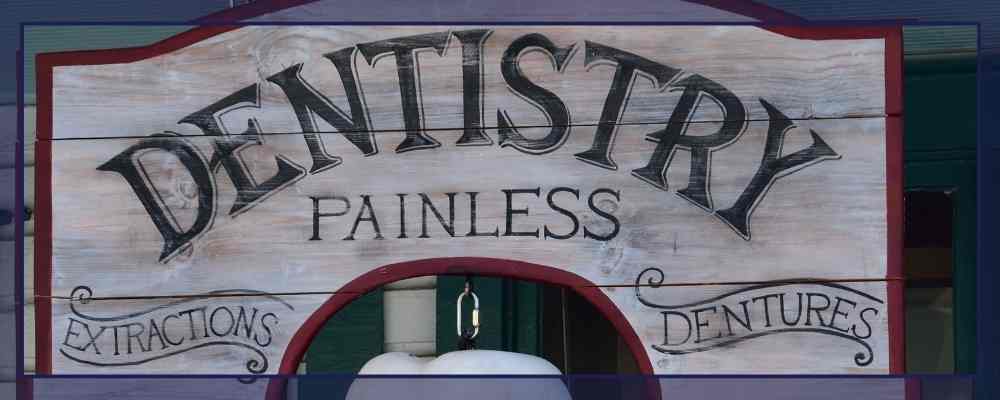Hi, my name is Mandy, and I’ve spent nearly 17 years working in a private dental practice since graduating from Utah Tech University’s dental program back in 2008, where I’m also now an instructor. I’d like to take a moment to dive deeper into why oral health matters far beyond just your teeth—it affects your overall well-being and quality of life.
Your smile: a gateway to health.
Our mouths are so much more than a place to chew and speak—they serve as the gateway to your entire body. Think of your mouth as the front door to your health. When everything inside is well cared for, it helps protect what’s beyond. However, when oral health is neglected, that door can swing wide open to serious problems.
Bacteria naturally live in our mouths, and most of the time they coexist peacefully. However, when plaque builds up from poor brushing or frequent snacking on sugary foods, these bacteria can multiply and cause infections in your gums and teeth. If left untreated, these infections don’t just stay local—they can enter your bloodstream through tiny blood vessels in your gums and quietly travel to other parts of your body.
Research has shown strong connections between gum disease and serious health conditions. For example, bacteria from your mouth can contribute to heart disease by causing inflammation or even infections in your arteries. It’s also linked to kidney problems and can increase risks in people with prosthetic joints, where infection could threaten the joint’s stability.
So, when you’re brushing and flossing, you’re not just protecting your teeth from cavities or keeping your smile bright—you’re defending your whole body. Maintaining good oral hygiene is a key part of overall health. Taking care of your mouth can reduce the risk of heart attacks, strokes, diabetes complications, and more.
What goes in…
Going back to the basics of dental health, I’ve noticed how many people still overlook the impact of what they eat and drink. It’s not just candy that harms your teeth; acidic drinks like soda (even diet soda), coffee, and energy drinks bathe your teeth in acid, which erodes the protective enamel. Snacks like crackers might seem harmless, but they break down into sticky, cavity-causing sugars.
Do you love soda?
What matters is not how much you consume, but how often you drink it. Sipping acidic drinks over several hours exposes your teeth to acid much longer, causing more damage than drinking the same amount quickly. Try to drink your soda in one sitting and follow it with a glass of water to rinse away the acid. This simple habit can help protect your teeth from long-term damage.
Beyond diet, smoking and vaping make oral health even more complicated. They dry out your mouth and reduce blood flow, weakening your immune system’s ability to fight gum disease. If early gum disease is already present, smoking accelerates the
damage, leading to faster bone loss and infection. I always tell my patients: every cigarette costs you more than money—it’s like handing over your teeth.
Tips for parents:
Teaching good habits early is essential. Since kids usually lack the dexterity to brush or floss effectively until about age 5 or 6, they need your guidance and support. Set the tone by brushing and flossing together. Kids learn by watching — when they see you caring for your teeth, they’ll want to join in. Try using an electric toothbrush with a timer to help them brush for the full two minutes. Most kids need guidance until they’re at least 6 or 7, when they can brush well on their own. Stick with it — you’re laying the foundation for a lifetime of good habits.
One great way to encourage consistent brushing is to use a treasure box reward system. Here’s how you can create one at home:
- Choose small rewards your child will enjoy (stickers, small toys, extra storytime, etc.)
- Use coins, tokens, or points on a chart to track brushing success
- Decide how many coins or points your child needs to earn a reward
- Be consistent with praising and rewarding your child when they brush properly
What works for your family may look a little different, and that’s okay. When I was a child, my mom had her system: if we forgot to brush, we had to pay a small fine, and that money went toward our dental care. Later, with my kids, the treasure box idea I shared above worked great for us. It made brushing fun and gave them something to look forward to — and eventually, brushing became part of their everyday routine. The most important thing is to choose a strategy that fits your family’s rhythms and keeps your kids engaged.
And remember, oral health isn’t just about a pretty smile—it’s about keeping your entire body healthy and strong.
LOW-COST DENTAL CARE THAT’S CLOSE TO HOME
Utah Tech’s dental clinic in St. George provides low-cost cleanings and treatments by supervised hygiene students. Near the hospital with evening hours, it’s easy to access. Call (435) 879-4900 to join the patient list and be notified of openings. Patients from across Southwest Utah return regularly, and discounted fillings and extractions are available through a partnership with the University of Utah’s dental team.
This article originally appeared in the Fall 2025 issue of HEALTH Magazine.






